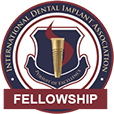Avoid the Emergency Room for Dental Problems
July 31st, 2018

There are certainly situations when going to an emergency room is the best response for your problem. A severe injury to your mouth, jaw, or face would qualify.
However, when it comes to long-term solutions for other dental problems, an emergency room visit may fall short. If you suffer from a major toothache, cavity, a broken tooth, crown, or veneer, it’s better to go straight to the dentist for treatment.
Dr. DeCasperis can provide you with a treatment plan that will be long lasting. When you visit an ER for a common dental problem, more likely you’ll only be given temporary relief for a serious and ongoing problem.
In many cases, the emergency room will give you pain medication to mask the symptoms until you can schedule an appointment at our Lebanon, NJ office. That results in a lot of wasted time, as well as two separate medical bills. The ER may give you a temporary crown or filling, but you will still need a follow-up appointment for a permanent restoration.
We recommend you find the nearest emergency dental clinic, or even try a home remedy to relieve the pain until you can schedule an emergency appointment at Dr. Steven DeCasperis, DMD. A warm salt-water rinse or cold compress can be used to sooth tooth and gum pain in the meantime.
If you experience a dental emergency and are unsure about what to do, feel free to contact our Lebanon, NJ office at any time. We will fit you into our schedule right away and figure out the best course of treatment for your problem.









